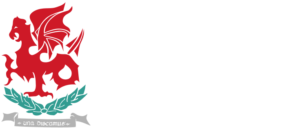Chemistry is part of the curriculum at Wellington College and is offered to students for GCSE and A-Level. It is taught as either an individual subject or as part of a general science course (such as Double Award Science).
Chemistry is taught by subject specialists and the department consists of well-equipped laboratories.
We encourage students to develop their thinking, communication, problem solving and practical skills. This is done using a variety of teaching strategies, class discussions and practical activities.
This year we enjoyed a variety of events in the Chemistry department. Students from year 11 and 12 with a keen interest in Chemistry attended ‘Chemistry at Work Exhibition’ at Queen’s University Belfast. On the 23rd of October we celebrated Mole day by baking cakes – Mole Day commemorates Avogadro’s Number (6.02 x 10^23).
GCSE
Chemistry – CCEA
http://www.ccea.org.uk/chemistry/
This is a course leading to the GCSE Chemistry examination. The emphasis is not only on developing both the pupils’ practical skills and techniques but also their understanding of concepts in Chemistry
The areas of Chemistry studied are:
Unit 1: Structures, Trends, Chemical Reactions and Analysis
Written Paper
1 hour 30 mins
35%
Unit 2: Further Chemical Reactions, Organic Chemistry and Materials
Written Paper
1 hour 45 mins
40%
Unit 3: Practical Skills assessed by controlled assessment
25%
A Level
CCEA (1110)
AS Level
Three units are covered in the first year of the course
Unit 1 Basic concepts in physical and inorganic chemistry- including atomic structure, bonding, Periodic Table, redox and titrations.
Unit 2 Organic chemistry and further physical and inorganic chemistry- including hydrocarbons, kinetics, alcohols and IR spectroscopy.
Unit 3 Internal assessment under exam conditions- including planning and practical exercises.
At A2 Level
Three further units are covered in the second year of the course
Unit 4 Periodic trends and further organic, physical and inorganic chemistry- including thermochemistry, equilibria, isomerism and environmental chemistry.
Unit 5 Analytical, transition metals, electrochemistry and further organic chemistry- including nuclear magnetic resonance spectroscopy, catalytic behaviour, chromatography and polymer chemistry.
Unit 6 Internal assessment under exam conditions- including planning and practical exercises.
Careers
Studying chemistry allows you to develop subject-specific and transferable skills which are valued by all employers, meaning your future career doesn’t have to be in a lab…
Job options
Jobs directly related to your degree include:
- Analytical chemist
- Chemical engineer
- Healthcare scientist, clinical biochemistry
- Forensic scientist
- Pharmacologist
- Research scientist (physical sciences)
- Toxicologist
Jobs where your degree would be useful include:
- Chartered certified accountant
- Environmental consultant
- Higher education lecturer
- Patent attorney
- Science writer
- Secondary school teacher
Chemists are considered to have the skills that make them highly employable and can, therefore, almost always find a job, even in tough economic times. Chemists also work in banking, law, publishing and accounting.


